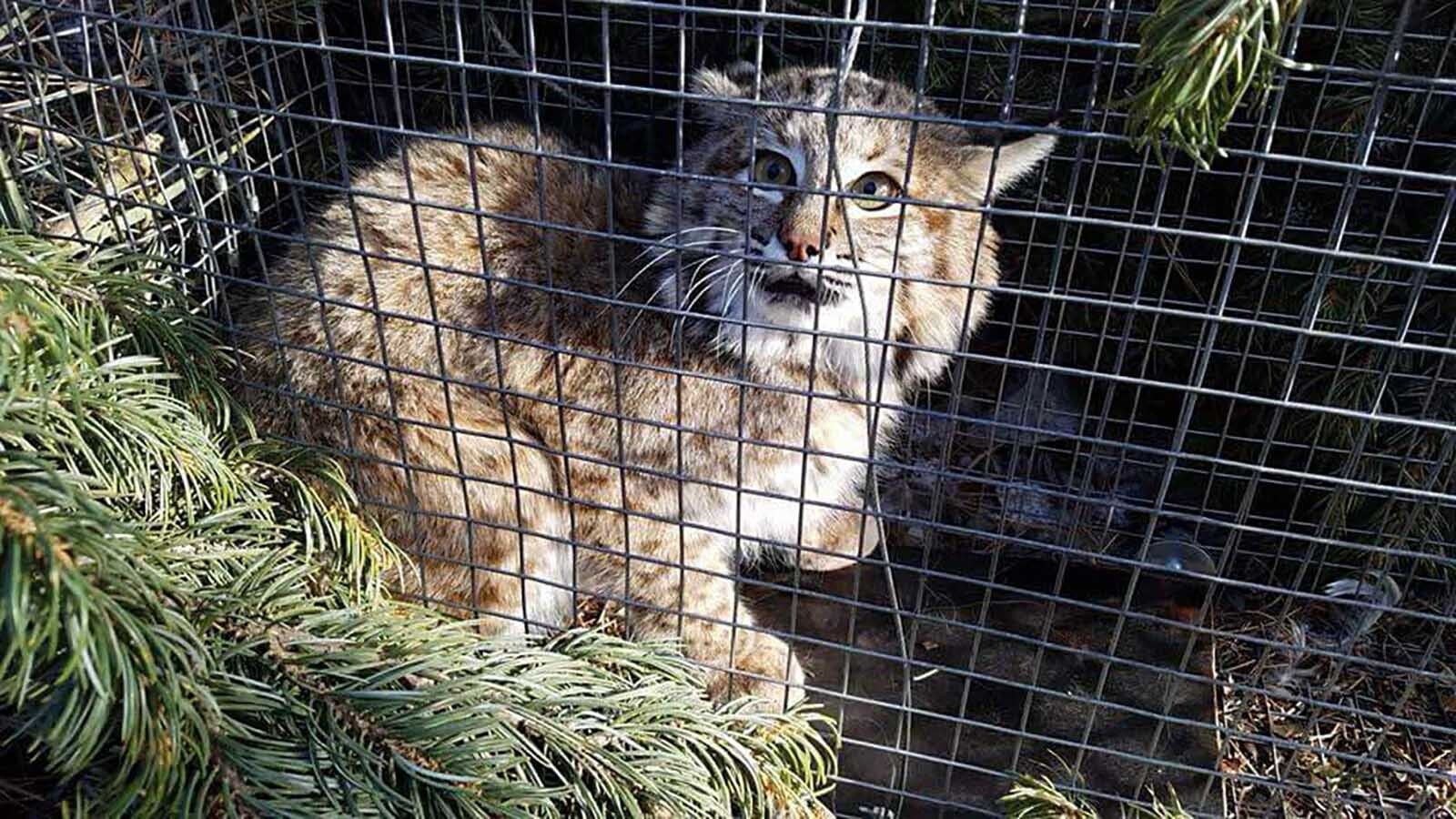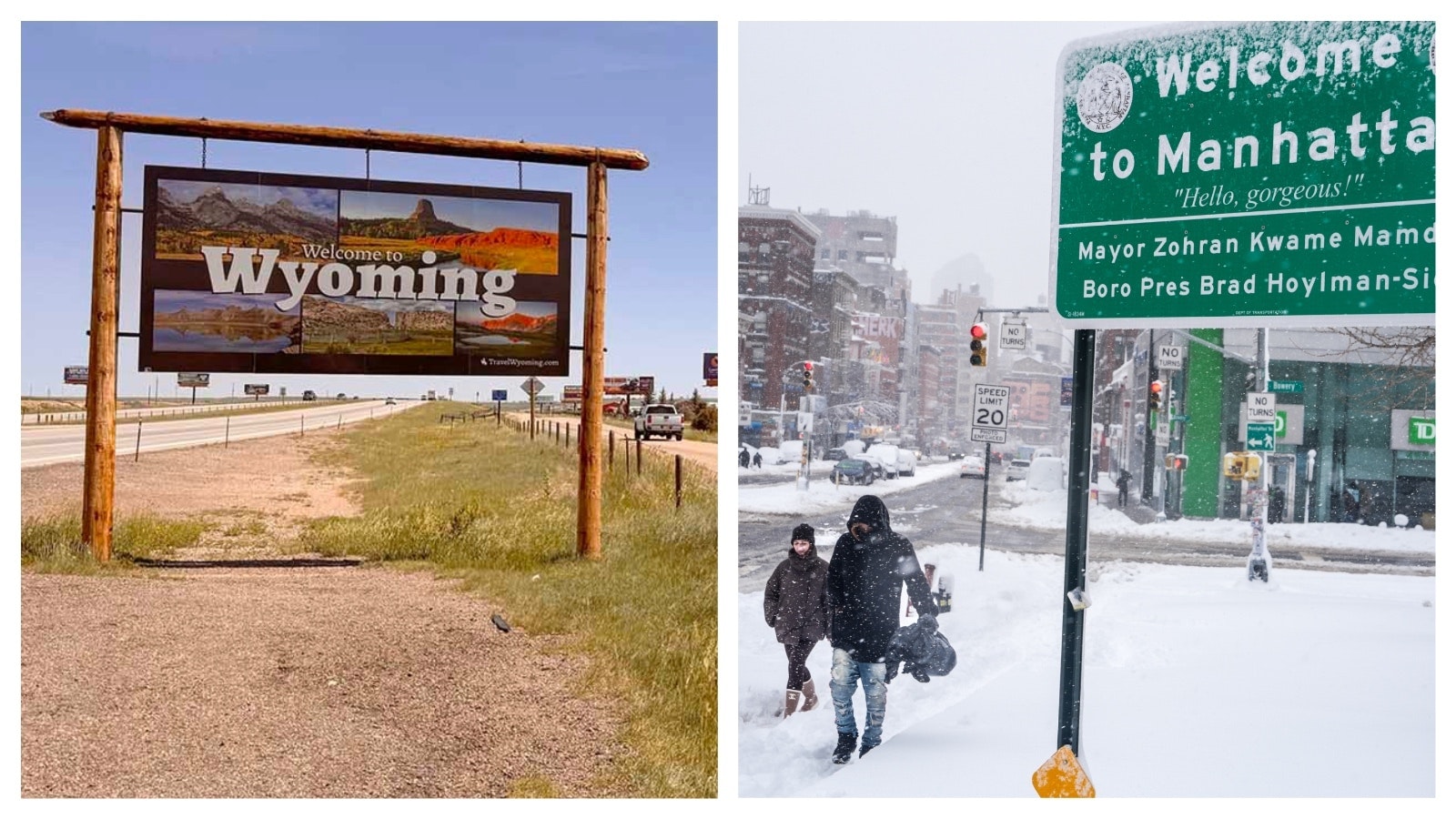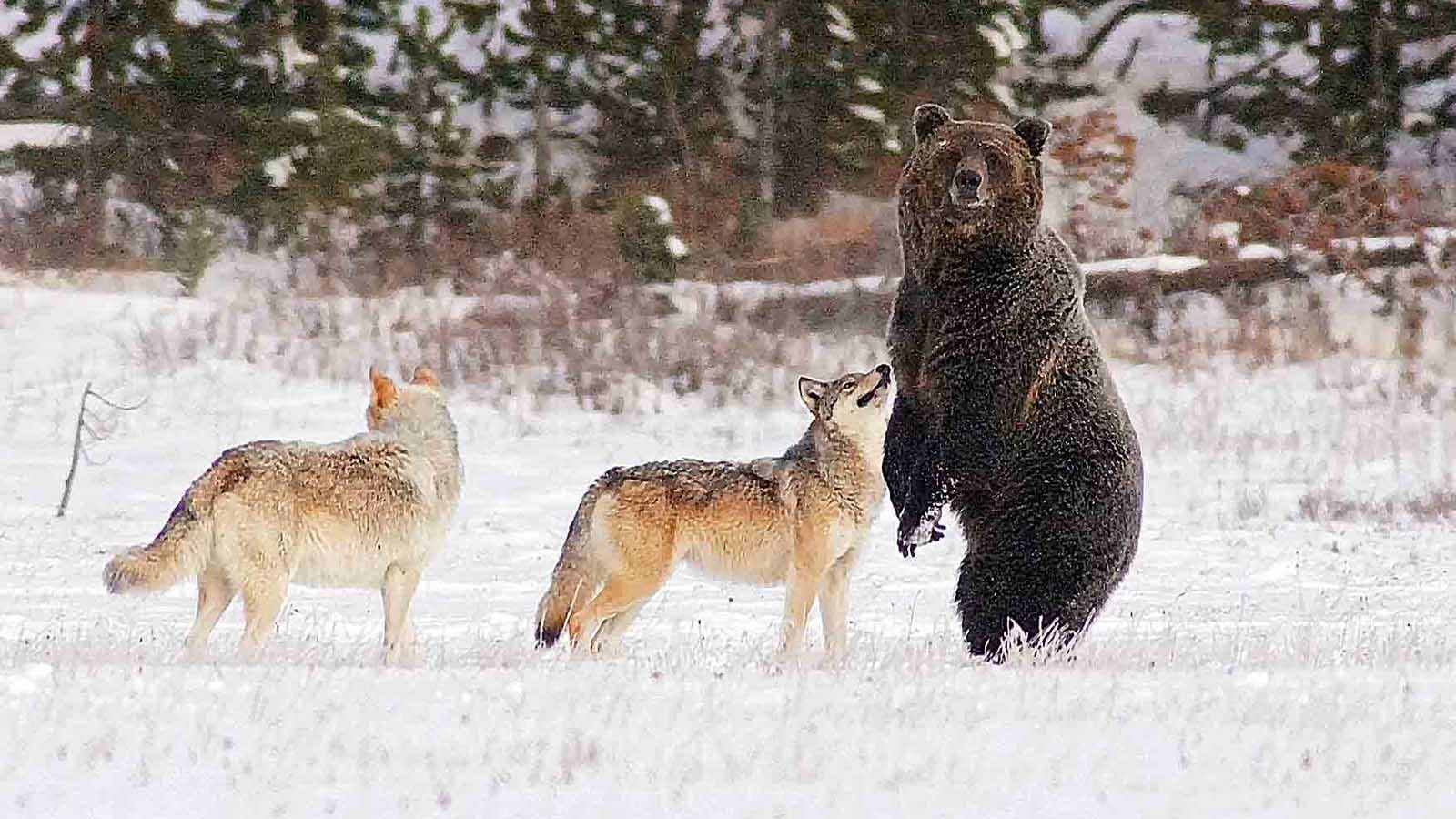It was September 9, 1870, and Truman Everts had become separated from the rest of his party in a dense pine forest in the heart of Yellowstone. He wasn’t too concerned at first, until the next morning when his pack horse ran off with all his supplies.
“I lost my blankets, gun, pistols, fishing tackle, matches—everything, except the clothing on my person, a couple of knives, and a small opera-glass,” Everts later wrote for the Scribner's Magazine.
Everts’ account of his 37 days of peril brought nationwide attention to Yellowstone and helped promote the campaign to make the region America’s first national park. But first, the erstwhile tax collector had to survive to tell his tale.
When he was found, mumbling to himself and emaciated, Everts insisted he had never gone insane as people assumed when they heard his story of ghostly apparitions. Everts said that his ghostly companions were very real and guided him to his rescue.
Everts, the first tax assessor for the territory of Montana, had been part of the Washburn–Langford–Doane Expedition, which was exploring the region of the future Yellowstone National Park when his adventure took a deadly turn.
In the following month, he survived a mountain lion attack, forest fire and near starvation.
As the days turned into weeks, Everts’ only hope of rescue were his strange ghostly companions.

Lost in Yellowstone
After Everts' horse ran off, he spent most of the day running after the beast and his supplies but only succeeded in getting himself hopelessly lost in a dark, thick woods. Everything that seemed beautiful before when in the company of others, now had a sinister tone.
“Naturally timid in the night, I fully realized the exposure of my condition,” Everts said. “I peered upward through the darkness, but all was blackness and gloom.”
He wrote how the wind sighed mournfully through the pines. The forest seemed alive with the screeching of night birds, the angry barking of coyotes, and the prolonged, dismal howl of the gray wolf. These sounds, familiar by their constant occurrence throughout the journey, were now full of terror.
Everts had no food or fire and was alone in an unexplored wilderness, 150 miles from the nearest human settlement. He was surrounded by wild beasts and already famished with hunger.
“It was no time for despondency,” Everts said. “I felt how calamity can elevate the mind, in the formation of the resolution "not to perish in that wilderness."”
He began to hike back to Yellowstone Lake, hoping to meet up with his companions along its shores.
The Illusion Of Help
During the first two days, Everts stayed partially hidden since he was fearful of meeting with Indians. Soon, however, there was nothing he wanted more than to fall in with a lodge of Bannock or Crow Indians.
“Imagine my delight, while gazing upon the animated expanse of water, at seeing sail out from a distant point a large canoe containing a single oarsman,” Everts said.
The canoe was rapidly approaching the shore where Everts was seated. He sprang up to meet it, excited by the prospect of food, safety and restoration to friends.
“As I drew near to it, it turned towards the shore, and oh! bitter disappointment, the object which my eager fancy had transformed into an angel of relief stalked from the water, an enormous pelican, flapped its dragon-wings, as if in mockery of my sorrow, and flew to a solitary point farther up the lake,” Everts said.
The incident, he said, quite unmanned him. The transition from joy to grief brought with it a terrible consciousness of the horrors of his current dismal condition.
That night, more terror came.
Everts was roused by a loud, shrill scream, like that of a human being in distress, poured, seemingly, into the very portals of his ear.
“There was no mistaking that fearful voice,” Everts said. “I had been deceived by and answered it a dozen times while threading the forest, with the belief that it was a friendly signal.”
It was the screech of a mountain lion. Everts barely escaped by scrambling into a tree. The cat growled and would have pounced but the explorer screamed back and threw branches at the lion.
“Moments passed with me like hours,” Everts said. “After a lapse of time which I cannot estimate, the beast gave a spring into the thicket and ran screaming into the forest.”
Relieved, Everts fell out of the tree and, even unbelievable to him, fell into a deep sleep on the forest floor.
Deadly Fire
Somehow, Everts lost his knives and all that remained were the clothing he wore and the opera glasses.
Fortunately, he had discovered that the roots of a thistle were good to eat and finally had food. However, fire was what he needed for his survival as winter began to descend upon him.
“Fire was indispensable as a protection against night attacks from wild beasts,” Everts said. “Exposure to the storms would destroy my life but for the warmth derived from the springs.”
Everts lay in the hot springs, learning to love the steam they created, but they, too, brought danger when he was scalded in his sleep. He was too injured to travel and stayed by the springs, eating the thistle and watching the sun glisten on the lake.
A foot of snow had fallen and as he waited for the sun’s warmth to melt it away, an idea struck him.
“I could, with a lens from my opera-glasses, get fire from Heaven,” Everts said.
He directed his lens on a bit of dry wood and produced a curl of smoke. The lost explorer now had fire.
Though the thistle was barely adequate, it was food, and Everts was determined not to despair. The fire, though, turned into an enemy when one night it raged out of control and Everts could only sit and watch the forest burn around him.
His clothes were torn, and he was exposed to the storms. Half-starved, he finally decided his survival would be dependent on him climbing out of the forest. He fashioned himself slippers from his remaining clothes and a fishhook from his belt buckle as Everts prepared to set off from the warm springs and supply of thistles.
Ghostly Help
Everts decided that he would climb the Madison Mountain. It was the shortest route to civilization and was “only” obstructed by the mountain. He didn’t want to retrace his steps over the long route by which he had arrived from Yellowstone River and had heard that the Snake River was a desolate country.
Everts filled his pouches he had made from the remnants of his clothing with thistles and began the trek home. As days melded into weeks, he finally reached the base of the Madison and found it more inaccessible that he could have ever imagined.
Full of despair, he tried to figure out what to do next when a ghostly figure appeared.
“I experienced one of those strange hallucinations which many of my friends have misnamed insanity, but which to me was Providence,” Everts said.
An old clerical friend whom Everts deeply respected was suddenly standing in front of the disheartened explorer. In a firm voice full of authority, the figure told Everts that he would be a fool to climb the mountain.
"Go back immediately, as rapidly as your strength will permit,” the ghost said. “There is no food here, and the idea of scaling these rocks is madness."
Everts argued against the advice.
"Doctor, the distance is too great. I cannot live to travel it," Everts said.
The ghostly figure refused to be ignored and persisted that Everts had to return the way he came. His life depended on it.
"Return at once. Start now, lest your resolution falter. Travel as fast and as far as possible—it is your only chance,” the ghost said.
Everts still argued against the idea. He protested that he was only 70 miles from Virginia and just had to get over the rocks.
"My shoes are nearly worn out, my clothes are in tatters, and my strength is almost overcome,” Everts said. “As a last trial, it seems to me I can but attempt to scale this mountain or perish in the effort, if God so wills."
The ghostly cleric was not to be dissuaded and told Everts that his power of endurance would carry him through the journey.
"I will accompany you,” the ghost said. “Put your trust in Heaven. Help yourself and God will help you."

Ghostly Encouragement
Everts was finally persuaded. He mainly went along with what he considered an insane trek because he was delighted with the idea of having a traveling companion. Reluctantly, he plodded his way over the route he had come, intending at a certain point to change it so as to strike the river at the foot of the lake.
When Everts would question the wisdom of the change of routes, his old friend would suddenly appear with words of encouragement to keep the explorer on his path.
However, Everts said, the ghost would not talk about other topics and this was annoying. As more days passed, Everts finally resigned himself that he would die in Yellowstone, despite the help of the ghostly guide.
Once, while struggling through a field of tangled trunks Everts seriously considered whether it was not preferable to die there than renew the effort to proceed. He felt that all attempts to escape were but a bitter prolongation of his eventual death.
It was then that he heard a whisper in the air.
"While there is life there is hope; take courage."
The words broke Everts delusion, and he clambered on. He lost all sense of days and time. After five days of walking with his ghostly companion, he finally found more thistles and broke his forced fast.
His ghostly cleric soon disappeared, and Everts was alone, but resolved now to live. He continued on the path the cleric had sent him. Each step was harder than the last but he persisted.
When, once again, he gave up hope, he heard a whispered command.
"Struggle on."
Groping along the side of a hill, Everts said he became suddenly sensible of a sharp reflection, as of burnished steel. Looking up, through half-closed eyes, Everts saw two rough, but kindly faces return his gaze.
He had been saved.
The Rescue
On October 16, more than a month after Everts' separation from his expedition, "Yellowstone Jack" Baronett and George A. Pritchett, two mountain men, found Everts.
The explorer was suffering from frostbite, burn wounds from thermal vents and his campfire, and other injuries suffered during his ordeal. He was so malnourished he weighed only 90 pounds.
Baronett and Pritchett had been part of a search party which had been sent from Montana to find Everts' remains. They discovered him, mumbling and delirious, more than 50 miles from where he had first become lost. The mountain men nursed Everts back to health with bear fat and eventually he was brought to Bozeman where he recovered completely.
The next year, Everts' personal account of the experience, complete with the tale of his ghostly rescuer, was published in Scribner’s Monthly. The thistle he survived on became known as Everts Thistle and a small mountain by Mammoth Springs was named in his honor.
To the end of his long life, Everts insisted that he had never gone insane and the ghostly cleric and the others who encouraged him to take the correct route were real. If he had been left alone, Everts believed that he would have died climbing the Madison Mountains. It was their ghostly intervention, Everts insisted, that saved his life in Yellowstone.
Jackie Dorothy can be reached at jackie@cowboystatedaily.com.










